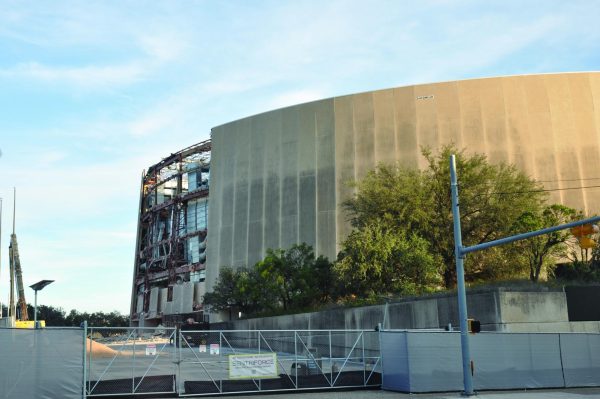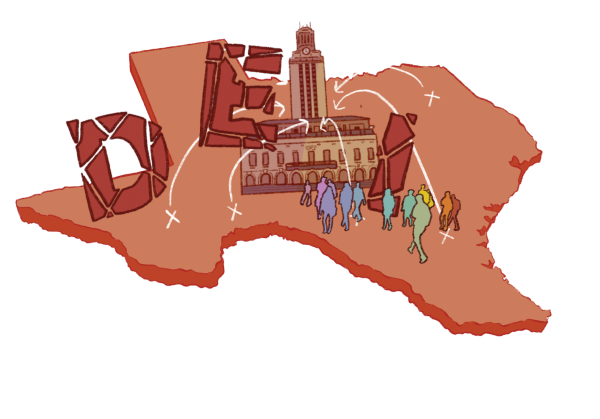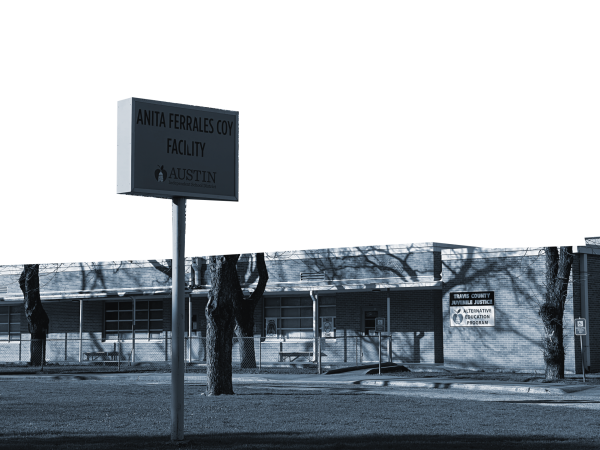Death Penalty in Texas
March 6, 2023
In July 2004, John Ramirez committed the murder of a Corpus Christi convenience store clerk. On Oct. 5, 2022, Ramirez was executed in Texas via lethal injection. According to the Texas Tribune, Ramirez showed great remorse for this murder, and even the victim’s family was not in favor of his execution.
A study done by the Death Penalty Information Center found Texas had the highest number of state executions. As of Feb. 2023, there are seven executions scheduled for 2023 in Texas, and this number could possibly grow.
Lilah Bounds is a LASA Sophomore and Youth and Government member. She said the death penalty is a punishment for capital crimes and is heavily against its use.
“This punishment is death by many possible means such as lethal injection, electric chair, etc,” Bounds said. “Lethal injection is the most common form of the death penalty in recent times. However, in the past, the electric chair was very popular. Death sentences may only be imposed for crimes in which the victim was killed.”
Bounds said she initially believed the death penalty was permissible in some cases. However, after doing lots of research on the topic, she says she is fully against it.
“There are so many reasons why I oppose the death penalty, but here’s a few of them,” Bounds said. “In murdering murderers, we’re stooping to their level of crime. We are being bad guys, even if we’re punishing bad people.”
Rick McClatchy is on the Board of the Texas Coalition to Abolish the Death Penalty [TCADP]. He said his religion plays a big role in why he is against capital punishment.
“I am a minister and religious leader for my denomination, Cooperative Baptist Fellowship of Texas,” McClatchy said. “As a Christian, my ultimate commitment is to live like Jesus. When Jesus was presented a woman who had committed a capital offense in her day, he forgave the woman saying only her accusers that were free from guilt could stone her. Of course none of us are free from sin and guilt, so this in effect ends the possibility for a Christian to support the death penalty.”
Bounds says the death penalty in Texas is more controversial because of how harsh it is. For example, she said the death penalty is legal in California, Oregon and Pennsylvania but even so, these states have moratoriums in place so that the death penalty is only used in the most serious of cases.
“One reason why Texas may have such a high execution rate is because we don’t have a public defender system for indigent defendants, and we instead rely on court-appointed lawyers who likely don’t have experience in capital murder defenses or appeals,” Bounds said. “This means that many defendants aren’t getting the legal resources that they deserve and might end up wrongly convicted.”
McClatchy said there are big issues that come with the use of capital punishment such as racial and classist biases. Wrongful convictions that could send an innocent person to death, also play a role in the controversy surrounding capital punishment.
“The same problems we see in the application of the death penalty exist across the board,” McClatchy said. “People of color and poor people are more likely to get the death penalty, which raises serious questions about the fairness of its application.”
According to the American Civil Liberties Union, the death penalty does not deter more criminals than a long prison sentence would. Bounds said this research is cited by many modern-day opponents to capital punishment.
“The alternative to this form of capital punishment would be life in prison, which many argue is not ideal due to the expenses of keeping inmates in appropriate facilities,” Bounds said. “However, it has been proven that using lethal injection as the death penalty can be just as expensive as sparing the criminal’s life, and instead sentencing them to a life in prison; which some say is just as bad, or worse than facing the death penalty.”
McClatchy said that in several cases that he’s run across in his time at TCADP, the defendant was often abused growing up, lived in extreme poverty, or was underrepresented in court at the time of their trial. One such case that McClatchy talked about is that of Andre Thomas, who was convicted of the murder of his estranged wife and children, and sentenced to death. Thomas, a Black man, was raised in extreme poverty and started hearing voices in his head when he was only nine years old. Throughout his childhood he tried several times to take his own life. In 2004, when he was twenty one, Thomas was suffering from severe schizophrenia and active psychosis, and murdered his ex-wife, his wife’s child, and the child they had had together. He then tried to take his own life, and then turned himself in. The all-white jury that convicted Thomas in 2005 though, dismissed his defense of insanity. McClatchy says racial biases were clearly at play in Thomas’ trial.
“Several members of the all-white jury that sentenced him to death expressed overt racial bias on their pre-trial jury questionnaires…The U.S. Supreme Court has made clear that the Eighth Amendment prohibits the execution of a prisoner who, like Mr. Thomas, does not understand why he is being executed,” McClatchy said. “Since being on death row, Mr. Thomas’s mental health has deteriorated. He is not competent to be executed.”
Mackenzie Waldinger is a sophomore at LASA. She says she finds the death penalty absolutely unnecessary, and there are much safer alternatives.
“I think it is a horrible system that is extremely unfair especially to non white people,” Waldinger said. “I don’t think anyone should die, especially because our justice system is so messed up that we shouldn’t really trust it until many reforms have been made.”









